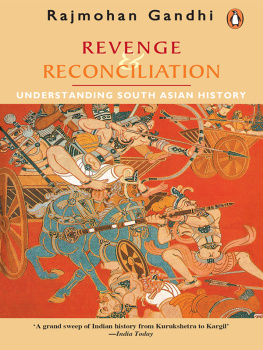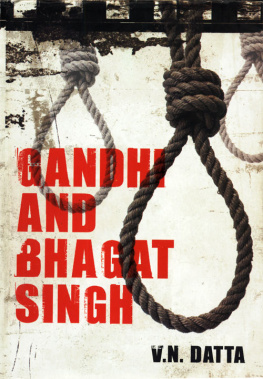Rajmohan Gandhi - Revenge and Reconciliation
Here you can read online Rajmohan Gandhi - Revenge and Reconciliation full text of the book (entire story) in english for free. Download pdf and epub, get meaning, cover and reviews about this ebook. City: India, New Delhi, New York, NY, South Asia, India., year: 1999; 2014, publisher: Penguin Books Ltd, genre: Art. Description of the work, (preface) as well as reviews are available. Best literature library LitArk.com created for fans of good reading and offers a wide selection of genres:
Romance novel
Science fiction
Adventure
Detective
Science
History
Home and family
Prose
Art
Politics
Computer
Non-fiction
Religion
Business
Children
Humor
Choose a favorite category and find really read worthwhile books. Enjoy immersion in the world of imagination, feel the emotions of the characters or learn something new for yourself, make an fascinating discovery.
- Book:Revenge and Reconciliation
- Author:
- Publisher:Penguin Books Ltd
- Genre:
- Year:1999; 2014
- City:India, New Delhi, New York, NY, South Asia, India.
- Rating:4 / 5
- Favourites:Add to favourites
- Your mark:
- 80
- 1
- 2
- 3
- 4
- 5
Revenge and Reconciliation: summary, description and annotation
We offer to read an annotation, description, summary or preface (depends on what the author of the book "Revenge and Reconciliation" wrote himself). If you haven't found the necessary information about the book — write in the comments, we will try to find it.
Revenge and Reconciliation — read online for free the complete book (whole text) full work
Below is the text of the book, divided by pages. System saving the place of the last page read, allows you to conveniently read the book "Revenge and Reconciliation" online for free, without having to search again every time where you left off. Put a bookmark, and you can go to the page where you finished reading at any time.
Font size:
Interval:
Bookmark:



Published by the Penguin Group
Penguin Books India Pvt. Ltd, 7th Floor, Infinity Tower C, DLF Cyber City, Gurgaon - 122 002, Haryana, India
Penguin Group (USA) Inc., 375 Hudson Street, New York, New York 10014, USA
Penguin Group (Canada), 90 Eglinton Avenue East, Suite 700, Toronto, Ontario M4P 2Y3, Canada
Penguin Books Ltd, 80 Strand, London WC2R 0RL, England
Penguin Ireland, 25 St Stephens Green, Dublin 2, Ireland (a division of Penguin Books Ltd)
Penguin Group (Australia), 707 Collins Street, Melbourne, Victoria 3008, Australia
Penguin Group (NZ), 67 Apollo Drive, Rosedale, Auckland 0632, New Zealand
Penguin Books (South Africa) (Pty) Ltd, Block D, Rosebank Office Park, 181 Jan Smuts Avenue, Parktown North, Johannesburg 2193, South Africa
Penguin Books Ltd, Registered Offices: 80 Strand, London WC2R 0RL, England
First published by Penguin Books India 1999
Under the auspices of the Centre for Policy Research, New Delhi
With support from the Friedrich Naumann Stiftung
www.penguinbooksindia.com
Copyright Rajmohan Gandhi 1999
All rights reserved
ISBN: 978-0-140-29045-5
This digital edition published in 2014.
e-ISBN: 978-8-184-75318-9
This book is sold subject to the condition that it shall not, by way of trade or otherwise, be lent, resold, hired out, or otherwise circulated without the publishers prior written consent in any form of binding or cover other than that in which it is published and without a similar condition including this condition being imposed on the subsequent purchaser and without limiting the rights under copyright reserved above, no part of this publication may be reproduced, stored in or introduced into a retrieval system, or transmitted in any form or by any means (electronic, mechanical, photocopying, recording or otherwise), without the prior written permission of both the copyright owner and the above-mentioned publisher of this book.
For sale in the Indian Subcontinent, the UK and the Commonwealth only
Rajmohan Gandhi, born in 1935, has written, among other works, Rajaji: A Life (Penguin), The Good Boatman: A Portrait of Gandhi (Viking/Penguin), Understanding the Muslim Mind (Penguin) and Patel: A Life.
Currently, he is a professor with the Centre for Policy Research, New Delhi.
To South Asias abruptly orphaned children and violently bereaved women and men.
To the memory of Eqbal Ahmad, 1933-99, foe of injustice, reconciler, and friend.
THOUGH I HAVE written biographies of influential figures in modern South Asia and taught modern Indian history for short terms, I do not see myself as a professional historian. If I have nonetheless ventured into the domain of historians, it is because the South Asian violence around me has impelled me to search for its historical roots. I have been driven, too, to search for reasons in history that have restrained feuding in the past and the present, for around me I have often also felt the magnanimity of accommodating or forgiving South Asians.
These urges to look for the springs of revenge and reconciliation were joined in my mind by other related questions about our past. For instance, does the Gita prescribe war? Does the Mahabharata constitute, as tradition holds, a Dharmashastra, a science of righteousness? Why did Buddhism and Jainism meet with comparative failure in India? If there are central impulses in Indian history, what are they?
What are the historical truths about castes and relations among them? What does history say about Hindus, Muslims and Sikhs and relations among them? About the impact, positive and negative, of British rule? About the impact of Gandhi? Of Nehru and Indira? Of Jinnah, Bhutto, Mujib, Pakistans Zia and the Zia of Bangladesh, the Bandaranaikes and their rivals in Sri Lanka? Of the militants in the Punjab, Kashmir and the Northeast (Indias and Sri Lankas)? Again, why were South Asians seemingly lukewarm about the fiftieth year of independence?
Each question of this son could warrant a separate book, if not more than one, but there was also a case, it seemed to me, for a simpler and a bolder study, one that would roam the large forest of Indian and South Asian history, including some of its trickiest branches, but armed with a compass of Revenge and Reconciliation.
I wanted to test a hypothesis that such a compass might contribute a little to an understanding of Indias (and South Asias) famed complexities-Anything said about India is true, and so is its opposite-and of Indias historical conflicts.
In opting against a narrower and possibly over-prudent focus, I was also influenced by the need, at the end of our century, for a broad appraisal of South Asias past and present, to supplement, God willing, what is being gained from close studies of fragments.
If the approach chosen has restricted the attention given to some of the issues listed above, it has also perhaps revealed a few of them in fresh colours. I would like to think that this study offers some new insights, but it does not unearth new facts. It seeks to read known facts of South Asian history-episodes, beliefs, myths-in a different light, and from an underused angle.
This was not conceived as a feel-good book, though it contains items that will lend pride. I realize that its reading of some of our historys wellsprings may in places cause disappointment or even pain, a possibility that distresses me. I console myself with the thought that frankness is indispensable at the ending of a millennium.
*
As was the case with The Good Boatman: A Portrait of Gandhi (Viking 1995), this study is the outcome of a project of the Centre for Policy Research (CPR), New Delhi, with which I have been associated from the summer of 1992. I can never be grateful enough for CPRs facilities, opportunities and atmosphere. To CPRs President, Dr V. A. Pai Panandiker, I owe a large debt of gratitude; discussions over the last seven years with him and other scholars on the CPR Faculty, on the themes of this study and on other topics, have been of considerable profit to me.
The views expressed in this study are, however, mine, and not necessarily CPRs. I would also like to express my warm gratitude to Frederich Naumann Stiftung, New Delhi, which made a generous contribution to CPR towards this project.
Engaged by CPR to assist me with research, Rakesh Chaubey plied me with reams of material and also with valuable leads. His labours have been of considerable help in the creation of this book.
As always, my wife Usha has shared in this effort with research, faith and encouragement.
My biggest debts, however, are to the large number of authors, ancient and modern, living and dead, Indian and non-Indian, referred to in the text, who took me closer to South Asias story, or to ideas that helped illumine that story. Their pages frequently instructed or moved me; their research supplied the bulk of this books substance. If the pile I have made is ungainly or unstable, the stones borrowed from others cannot be to blame. But theirs is the credit if the pile says something. I merely put the stones on top of one another, as a boy playing pitthoo might.
Font size:
Interval:
Bookmark:
Similar books «Revenge and Reconciliation»
Look at similar books to Revenge and Reconciliation. We have selected literature similar in name and meaning in the hope of providing readers with more options to find new, interesting, not yet read works.
Discussion, reviews of the book Revenge and Reconciliation and just readers' own opinions. Leave your comments, write what you think about the work, its meaning or the main characters. Specify what exactly you liked and what you didn't like, and why you think so.

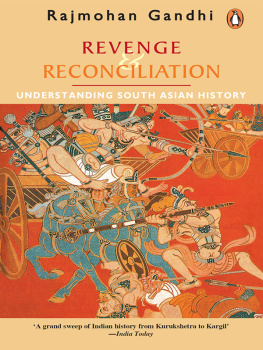
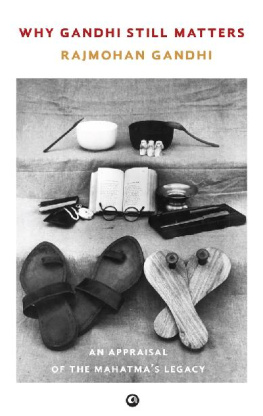

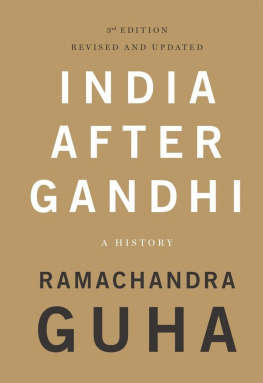
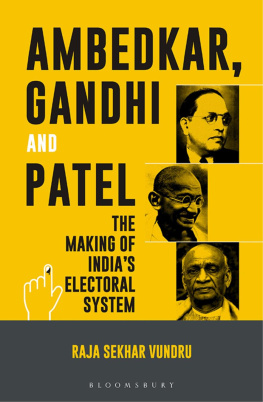
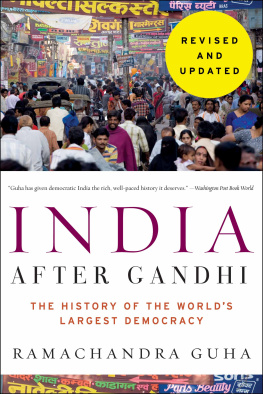

![Gandhi - Gandhi: [the true man behind modern India]](/uploads/posts/book/175484/thumbs/gandhi-gandhi-the-true-man-behind-modern-india.jpg)
